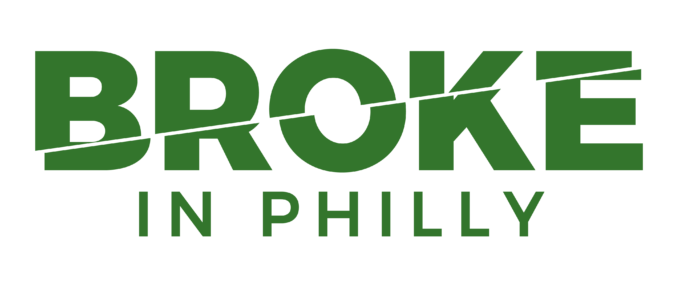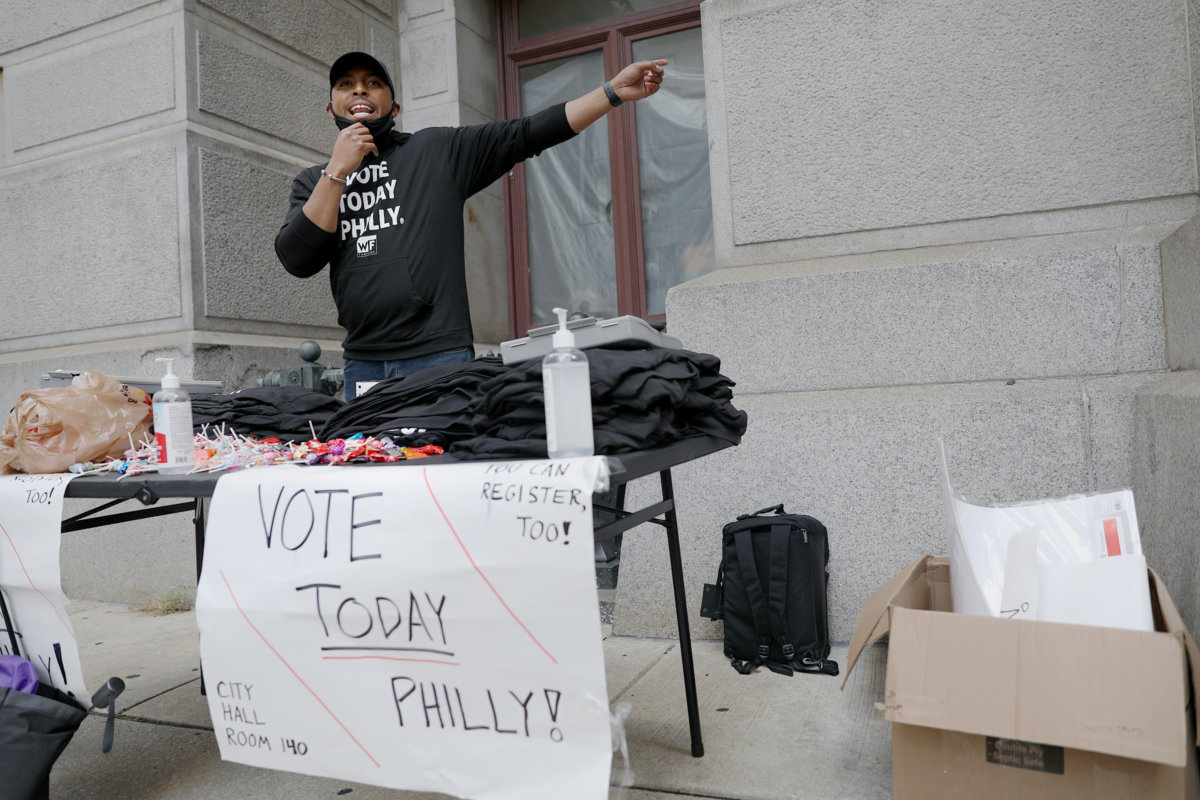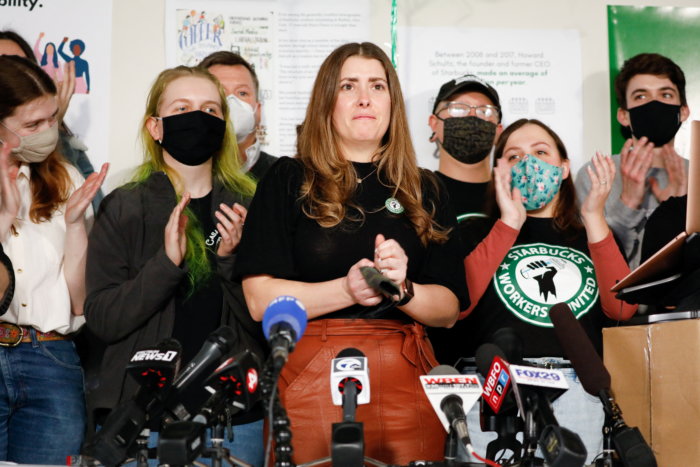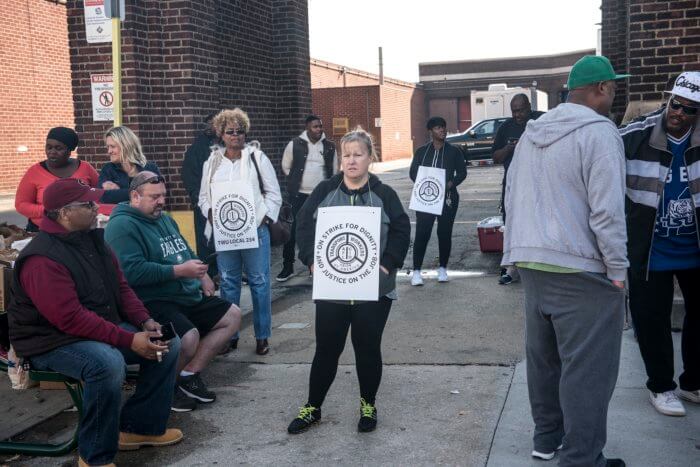At the beginning of the pandemic, when lockdowns and quarantines went into effect, employers laid off almost 98% of UNITE HERE hotel, gaming and food service workers, with many cutting access to health insurance and refusing to pay out other earned benefits. Months later, many of those same managers recalled members of the union’s Local 274 back on the job, some with little more than 24 hours’ notice and threats to terminate anyone who didn’t return.
Despite a strong desire to return to work and work hard, employers made it difficult for immunocompromised and ill-at-health employees and those with child care needs at a time when vaccinations were a year away, and school remained closed.
According to Emiliano Rodriguez, secretary-treasurer of UNITE HERE Local 274, service workers also face genuine safety concerns throughout the ongoing pandemic, risking their lives every day to clean a hotel room or serve someone a meal at the stadium. Managers will often give customers leeway regarding citywide safety regulations, such as masking, leaving front line employees to either speak up and bear the brunt of an enraged patron or keep quiet and risk possible illness.
“When the pandemic hit, how important profit and survival of the firm was to these corporations was really born out in a really, really ugly way,” Rodriguez said. “It really, fundamentally changed people’s relationship with work, with their employers. And I think people developed an understanding of why decisions are made by corporations and how they’re made.”
“In many, many ways these companies do not prioritize people as workers and workers as people,” he continued. “The main, primary motivation is profit.”
Over the past few months, a bold new wave of the worker solidarity movement, led by low-wage frontline service persons and retail employees who kept cities like Philadelphia running throughout the pandemic, has spread across the region.
Employment trends show greater numbers of Americans than ever before now leaving their jobs, many due to changing priorities in the COVID-19 era dubbed “The Great Resignation” or “The Big Quit” by national media. But such efforts defy simple classification, taking cues from modern-day labor movements and worker-driven narratives like Reddit’s r/antiwork forum, where people commiserate online about mistreatment on the job.
Such ideas now percolate throughout the Philadelphia region, seen in UNITE HERE’s recent strike at the Wyndham Hotel and individual efforts to call out employers who mistreat their workers. Area unions, political parties and organizing groups see renewed interest in establishing dignified working standards — with many noting that any movement must center workers of color and not shy away from conversations about white supremacy in the workplace.
Jeeva Muhil, an organizer with Philadelphia’s Asian Pacific American Labor Alliance, heard from many service workers who experienced systemic oppression throughout the pandemic. Immigrant populations found it difficult, if not impossible, to access government assistance such as unemployment. At the same time, all persons of AAPI descent faced — and continue to face — racism and violence linked to COVID-19.
“The people you’re trying to help at your job are swearing at you and saying racist [stuff],” she said.
Because of years of poor working conditions and low wages, workers across the region — and the country — quit their jobs in droves this past year. In September, Pennsylvania saw 126,000 people quit their jobs, 17,000 more than in the same period the year before, which is a not-insignificant number for employers looking to hire. But as the value of labor grew in the market, many employers balked at offering increased pay, instead blaming and lobbying to cut pandemic unemployment insurance.
“It was also this motivation, I think in many cases, of starving people back to work,” Muhil said. “You’ve seen that with a lot of states that cut off unemployment benefits, extended unemployment benefits early, because there was a lot of people who made more on unemployment than they do working two full-time jobs.”
“And instead of taking that as a sign to up wages, there was a big push to get people back to work as soon as possible,” she added.
But pandemic-era service and retail workers in Philadelphia find themselves concentrating their power within individuals finding their voice and at the organizing level, too.
According to Nicolas O’Rourke, pastor of a small church in Northeast Philadelphia and the organizing director of the Pennsylvania Working Families Party, multi-racial groups of working-class people continue to pressure the system. Since 2020, worker-led efforts too complex to be distilled down to “The Great Resignation” have resulted in the ousting of the Free Library of Philadelphia’s director, a union drive at the Philadelphia Museum of Art, and COVID-19 whistleblower and fair workweek protections, among other things.
“We have seen a slight rejuvenation, a realization amongst workers who are saying right now: ‘Wait a minute. We are doing a whole lot to get so little,’” O’Rourke said.
“I think people woke up,” he continued. “That and I think, especially in a time when people were talking about how the labor movement was on the decline, that this has definitely stirred up something amongst the labor movement and workers — to take one from (U.S. Rep.) Maxine Waters — to reclaim the time.”

Metro is one of more than 20 news organizations producing Broke in Philly, a collaborative reporting project on economic mobility. Read more at brokeinphilly.org or follow on Twitter at @BrokeInPhilly.
































